Arch Support Insole Prescription
Arch support incorporated as a feature of custom orthotics is primarily intended for patients with symptomatic flat feet and/or excessive pronation.
The main reasons for fitting someone with foot orthotics include addressing secondary issues such as midfoot arthritis or tibial posterior dysfunction.
At Orthotics Plus, we measure, prescribe and deliver professional-quality arch support orthotics to the Melbourne community.
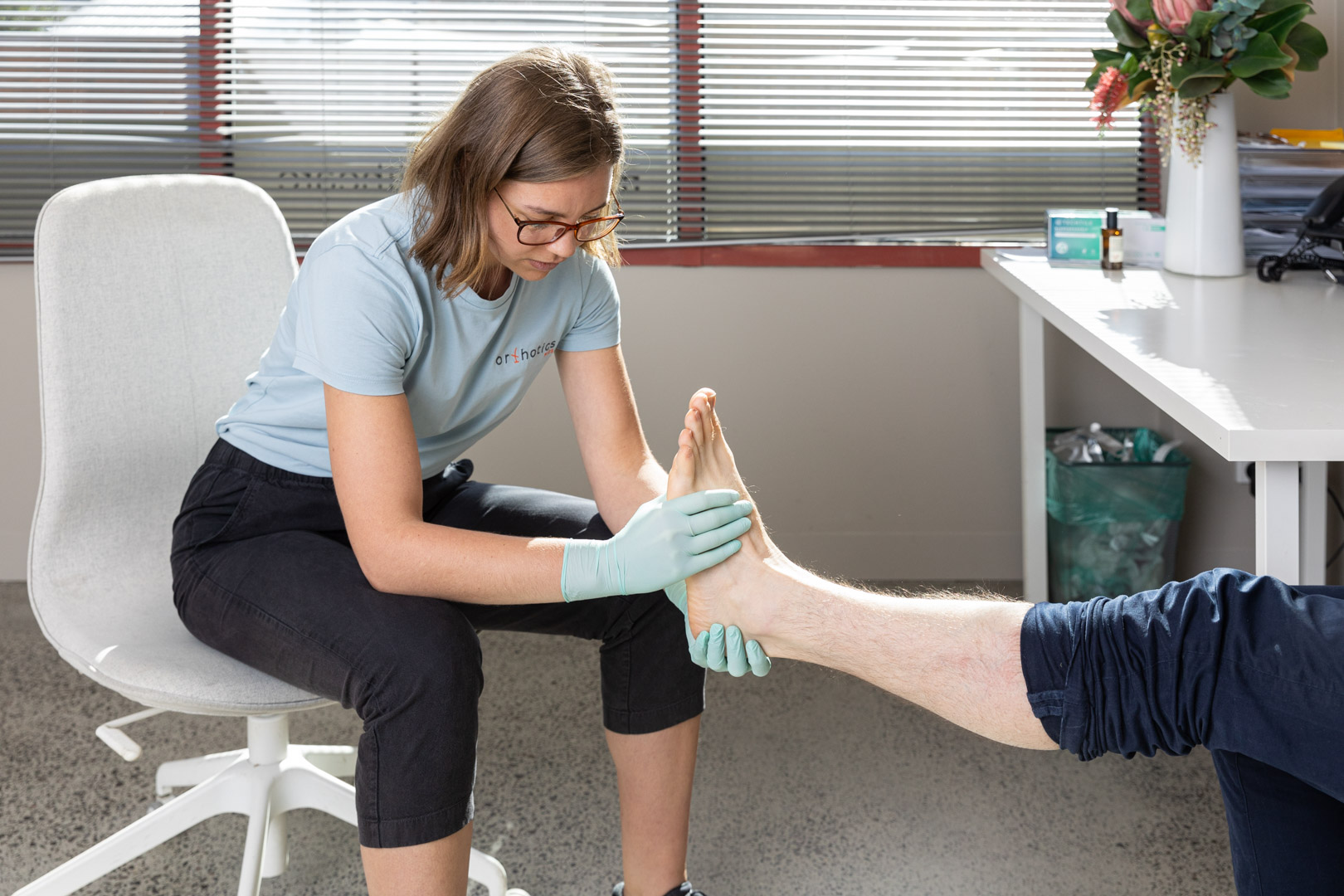
Why Do Flat Feet Cause Arch Pain?
Flat feet, also known as pes planus, can lead to arch pain due to several factors:
- Stretching of the soft tissue: The soft tissue of the foot is stretched and strained due to the hypermobility & excess movement of the foot
- Abnormal loading: Flat feet often lack the natural arch structure that helps distribute weight evenly across the foot. Excess load is taken in specific areas.
- Overpronation: Flat feet are often associated with overpronation, where the foot rolls inward excessively during walking or running. This can cause the arches to collapse further and can result in increased stress on the soft tissues and muscles supporting the arches
- Plantar Fasciitis: Flat feet can also contribute to the development of plantar fasciitis, a condition characterised by inflammation of the plantar fascia—a thick band of tissue that runs along the bottom of the foot from the heel to the toes
The biomechanical changes associated with flat feet can disrupt the normal distribution of weight and strain on the foot, leading to arch pain and discomfort.
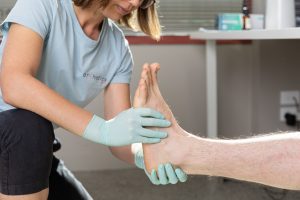
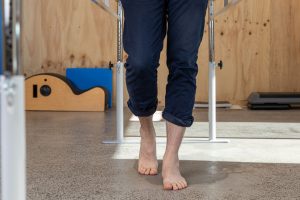
How do Custom Orthotics Help with Arch Pain?
When it comes to requiring arch support, our goal is to correct the foot posture to alleviate symptoms.
We aim to improve foot posture by providing support under the arch. This might involve adding a medial wedge or wedging at the heel to aid in correction.
Ultimately, our focus is on reducing pain.
We aim for enough correction to achieve pain reduction, and improve the foot posture within normal bounds.
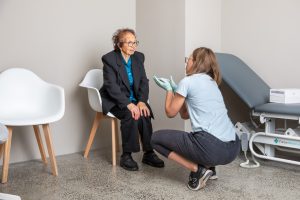
How Are Arch Support Insoles Customised to Each Patient?
Prescription:
Custom-made orthotics are typically prescribed to ensure precise alignment and comfort for the individual.
Other customisations to the insoles are considered such as:
- Metatarsal domes
- Medial wedges
- Soft heel cushions
- Heel raises
This unique combination of specifications will be customised to the individual.
Why custom?
This approach allows us to tailor the arch position and height to the patient’s exact needs, maximising both the benefits and comfort provided.
To achieve this customisation, we begin by taking scans of the feet, which are then modified and used to mill out the orthotics.
How do we make them?
At Orthotics Plus, we customise orthotics based on your unique needs using advanced techniques like foot scanning, plaster casting, or direct molding.
Through careful assessment, we determine optimal arch height and weight distribution, ensuring a perfect fit that corrects posture without discomfort.
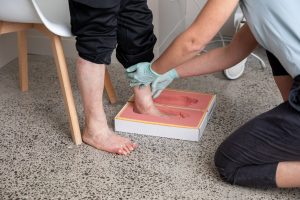
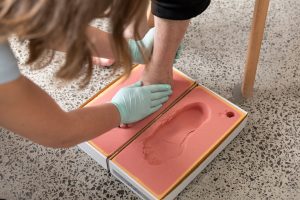
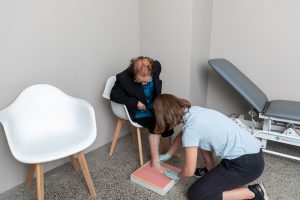
What Can Someone Expect Adjusting to Orthotics?
Adjusting to custom insoles with arch support can involve some temporary discomfort as the alignment of the foot posture changes. This can lead to muscle aches as the muscles are utilised in new ways, not dissimilar to soreness experienced after new exercises.
Additionally, especially for active individuals, blisters may develop in the arch area as the foot adjusts to the new load distribution.
To help mitigate discomfort during the adjustment period, we recommend following a wearing-in routine. This involves wearing the insoles for shorter periods initially, such as an hour or two on the first day, and gradually increasing the duration for several days.
By 7-10 days, most should be able to wear the insoles full-time without experiencing significant discomfort and be better off for the long run.
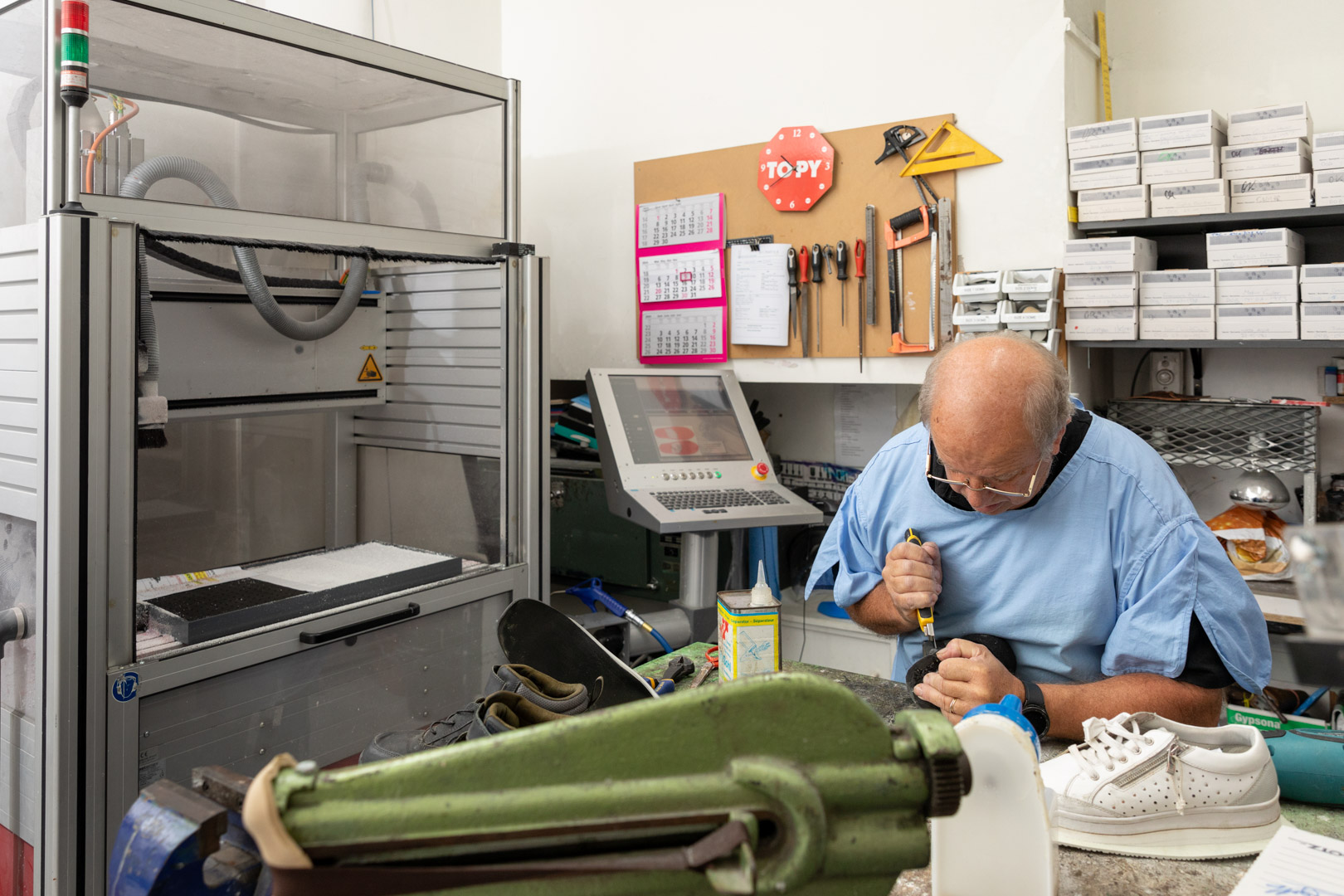
What Follow-Up Care is Recommended for People Using Arch Support Insoles?
For custom insoles with arch support, we typically conduct a follow-up review approximately three weeks later to assess pain levels and progress.
While we don’t anticipate complete pain relief at this stage, we expect individuals to be moving in the right direction. We often advise that it takes about 12 weeks for the orthotics to reach their optimal performance level.
Therefore, after three weeks, our primary goal is to observe improvement and expect further enhancements in the following weeks.
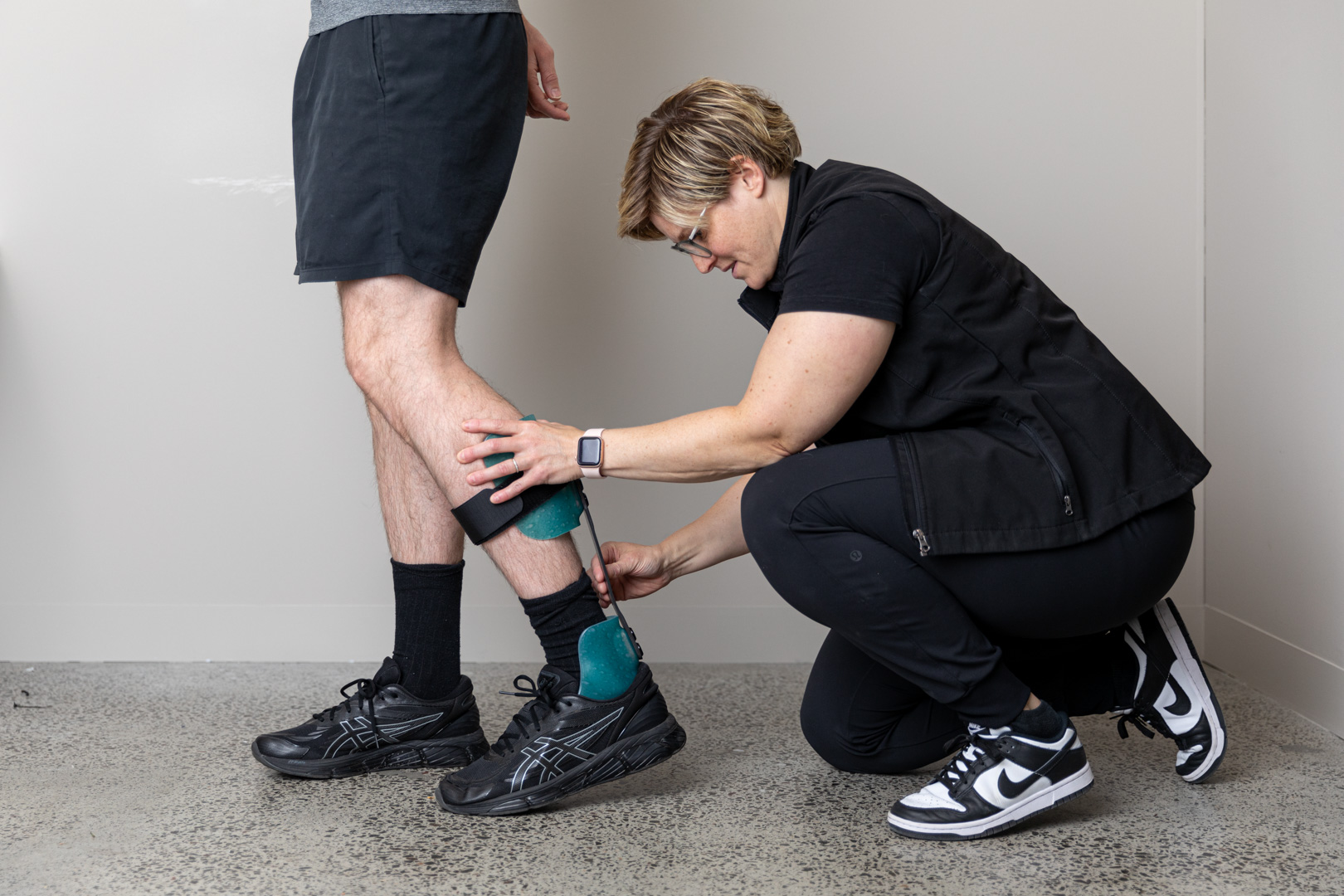
Where Can I Get Arch Support Orthotics in Melbourne?
You are welcome to contact any of the Orthotics Plus Melbourne clinics.
- We have been crafting high-quality Orthotics since our inception over 10 years ago
- You will be treated with professional care by our qualified Orthotists
- After the initial fitting, we can refine the Orthotics even further
- You will be provided with comprehensive, long-term care
Please feel free to book online, or contact our friendly team with any questions.
Contact Us Call (03) 9077 6414
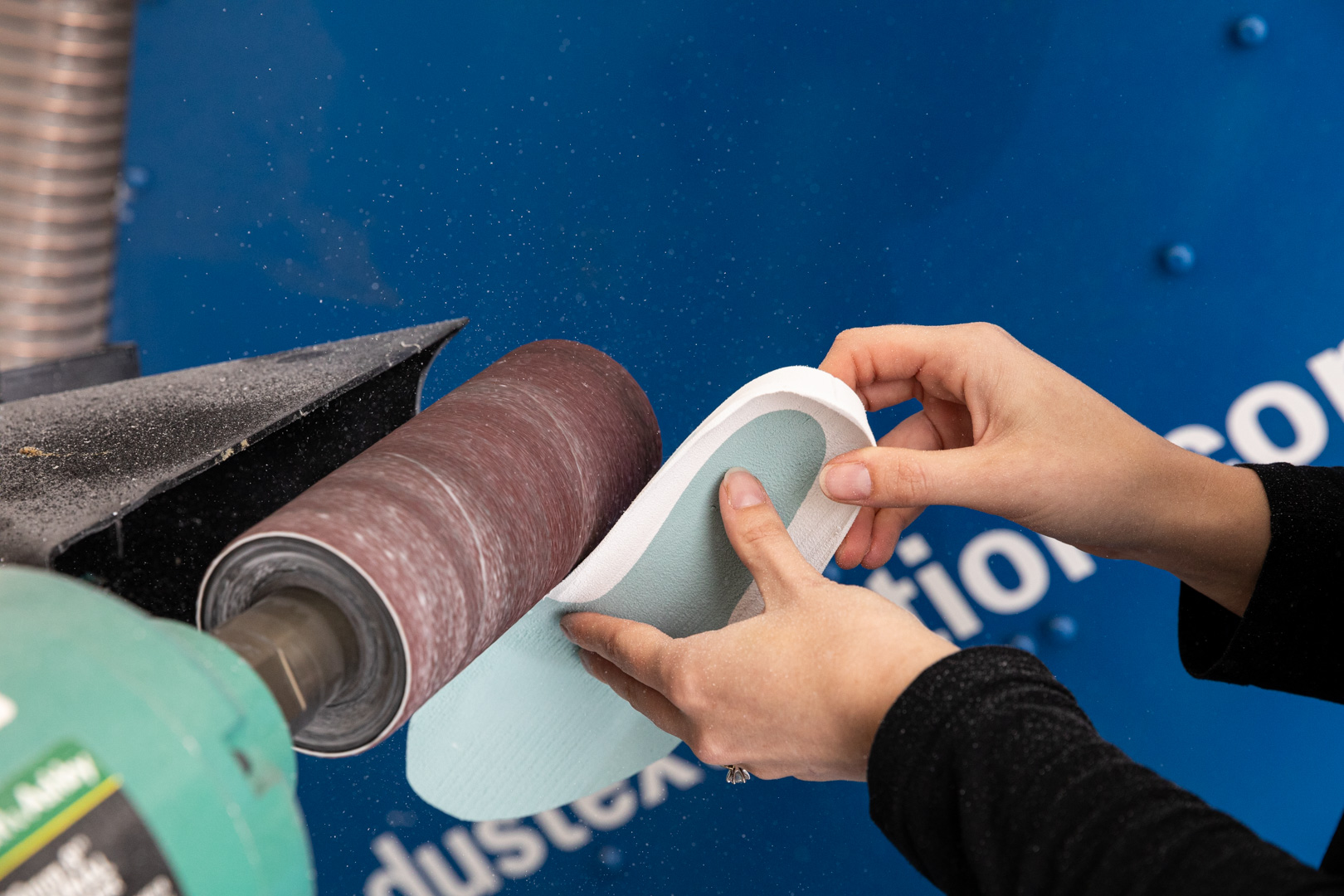
FAQ
In general, they can be reused from shoes to shoes.
In rare cases, people’s shoes may change greatly, and they would like a pair customised to each pair.
For example adding an orthotic into a pronatory control shoe after wearing a neutral soled shoe may overcorrect the issue.
For individuals leading highly active lifestyles or in higher-weight categories, we opt for a slightly denser foam material.
We never use hard plastic; instead, we choose foam that provides both support and cushioning. This denser material offers enhanced control and stability for these patients.
Conversely, for lighter individuals who require less control and may benefit from additional cushioning, we use a lower-density material in their custom arch support insoles.
Off-the-shelf products typically come in standard shoe sizes with preset arch heights and positions. They may not offer additional features like metatarsal domes or other specific requirements.
While prefabricated options are more cost-effective, they may not provide the same level of clinical effectiveness.
However, the suitability of these options depends on the individual’s foot shape and needs.
We might consider off-the-shelf arch supports for pediatric patients, but for most adults, custom-made supports are preferred unless financial constraints are a significant concern.